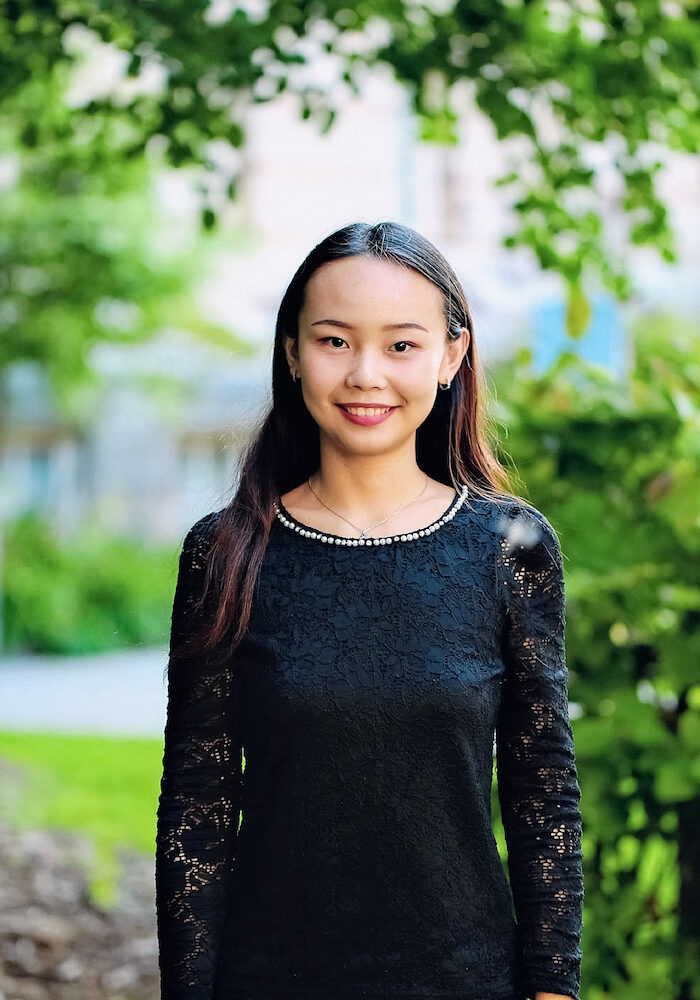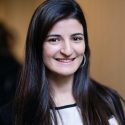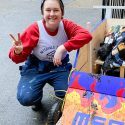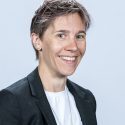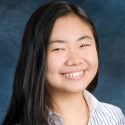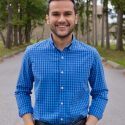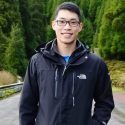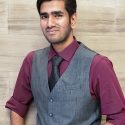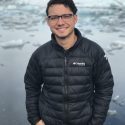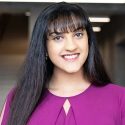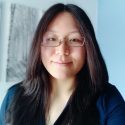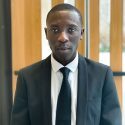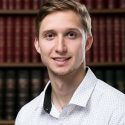U of T ENGINEERING
Grads to Watch 2020
Story by Liz Do & Tyler Irving
With the University’s virtual Convocation ceremony on June 2, 2020 U of T Engineering students mark the end of one journey and the beginning of another. Graduating in the midst of a global pandemic, the Class of 2020 will long be celebrated for its tenacity, resilience and spirit
Having enriched the U of T Engineering community as undergraduate and graduate students, they will join our vibrant, global network of Skule™ alumni, where they will continue to address pressing challenges around the world and inspire the next generation.
This year’s 16 “Grads to Watch” — selected by their home departments and institutes — embody the spirit of U of T Engineering. Their stories illustrate the creativity, innovation and global impact that define our community. Watch their next steps!
solar energy pioneer
Esmeralda Bukuroshi (ChemE PhD 2T0)
Bukuroshi’s thesis focused on carbon-based molecules that can transform light into electricity. They could one day lead to solar cells with very different properties than those in use today: for example, they could bend or twist, enabling them to be sewn into wearable technology.
A highlight of Bukuroshi’s program was the six months she spent at the University of Copenhagen studying with Professor Mogens Brøndsted Nielsen, an exchange facilitated by a Mitacs Globalink Award.
“I was able to live abroad for half a year while learning and practicing new chemical techniques,” she says. “My efforts there expanded the range of possible applications for my materials, and fostered new collaborations with my home research group at U of T Engineering.”
As co-chair of the Chemical Engineering Graduate Students’ Association, as well as the co-founder and vice-chair of the Graduate Engineering Council of students, Bukuroshi focused on helping her fellow graduate students to enhance their professional skills. She created the ChemE poster exhibition, and coordinated student volunteers for the Engineering Graduate Career Fair, both of which are now annual events.
Following graduation, Bukuroshi plans to work as a policy analyst in the federal or provincial governments, leveraging her research and leadership skills to ensure that government programs are equitably beneficial to Canadians.
“I am looking forward to learning about the data-informed decision-making policy process and the mechanisms that governments follow to invest in innovative research and development while enriching my ability to communicate a wide breadth of issues,” she says.
“I am grateful to my supervisor, Professor Tim Bender, and the amazing people who joined my research group over the years. Not only I have grown professionally, I have also made good friends for life. I want to thank all the student leaders across the faculty for their tremendous efforts. The biggest shout-out goes to my loving family for the support they continue to provide me every step of the way. I couldn’t have asked for more."
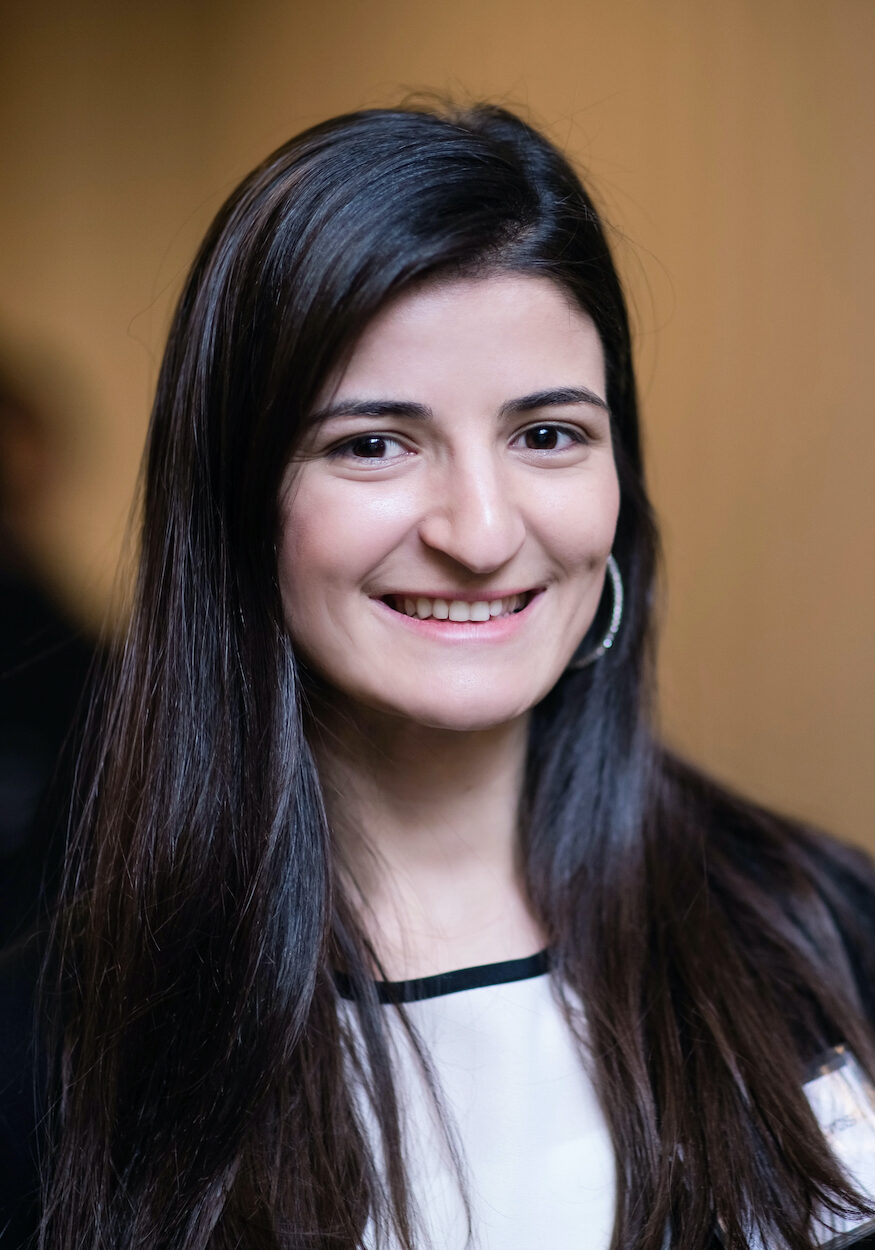
ADVANCED MATERIALS EXPLORER
Brittny Eileen Carter (MSE 1T9 + PEY)
Carter grew up in Russia and British Columbia and is the first engineering student in her family.
“When I came to U of T, I felt disconnected from my support network,” says Carter. “It was a weird time, but I found a second family in MSE.”
The MSE Club — which Carter volunteered for every year of her program — unites students and faculty members across the small department. She also led materials design for the Concrete Canoe team, designed a new logo for the Skule™ Archives and drew a regular comic strip for one of the Skule™ newspapers.
Carter is grateful for the research experience she gained under two MSE professors. She worked with Gisele Azimi on acid leaching of rare earth elements from industrial waste. With Uwe Erb, she studied how pine needles interact with water and ice, a property engineers could one day mimic to prevent ice buildup on airplane wings.
“Professor Azimi has been a huge inspiration to me, both as a top researcher and as a confident and successful woman in engineering,” says Carter. “Professor Erb not only taught his students how to conduct professional research, but always found time to discuss personal issues with kindness and understanding. He inspires me to try to be better than I was the day before.”
After her third year, Carter did two internships through the PEY Co-op program, one at Environment and Climate Change Canada, where she learned about how various emissions regulations are enforced, and one at Integran, an advanced materials company that Erb co-founded.
“At Integran I worked on researching and developing different nanocrystalline metal coatings for all sorts of applications, from hockey sticks to aerospace components,” says Carter. “I was doing the full range of tasks, from grinding and polishing samples in the lab to developing new engineering solutions. I learned what it really takes to be an engineer.”
Carter is still weighing options for next year. “I have a very long list of different things I would like to do as an engineer, ranging from doing fieldwork somewhere in Northern Canada, to building a bridge to helping make Toronto an even better city than it is,” she says. “I think my degree has prepared me to adapt to any challenge.”
“I would like to thank the MSE department staff for always having my back, for never minding my laughter in the Wallberg corridors, and for their enthusiasm in making sure MSE students are always doing well. The students really appreciate you and everything you do. From the bottom of my heart and soul, thank you very much."
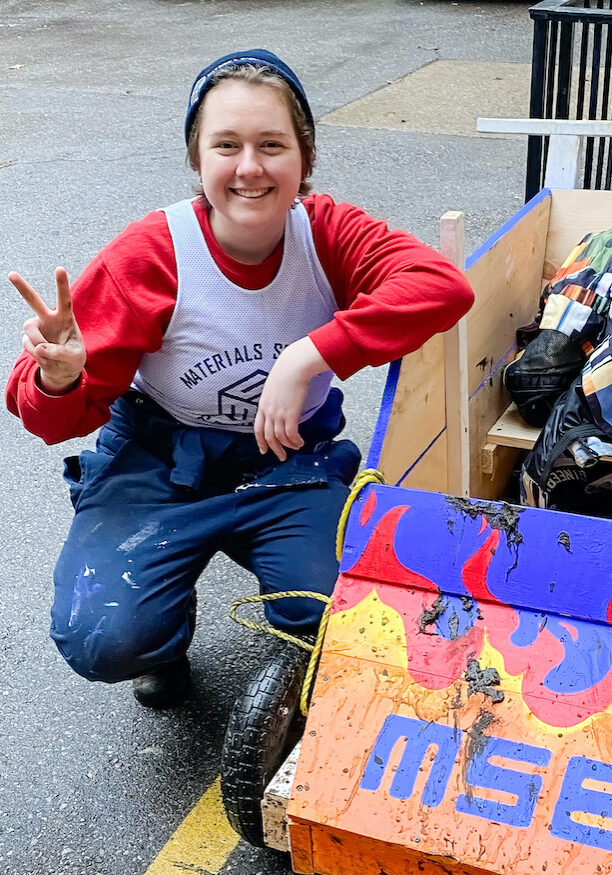
engineer and international athlete
Sasha Gollish (CivMin PhD 2T0, PEng)
Gollish was one of the first students enrolled in collaborative specialization in Engineering Education, offered jointly by U of T Engineering and the Ontario Institute for Studies in Education. Supervised by Professor Bryan Karney, Gollish studied attitudes toward mathematics among engineering faculty.
“The ability of students to think and communicate mathematically is so much more important than I envisioned,” she says. “This is especially true when it comes to abstract mathematics.”
Outside of the classroom, Gollish is also a world-class runner. In the first year of her PhD, she won the Governor General’s Academic Athletic Excellence award, and was named Athlete of the Year for U of T, USports Track and Field, and OUA Track and Field.
All of that academic and athletic work set her up for the Pan Am Games in Toronto, where she won a bronze medal in the 1500-metre race. Since then, has represented Team Canada at major events every year, from the 2016 Pan Am Cross-Country Championships in Caraballeda, Venezuela to the 2019 World Athletics Championships in Doha, Qatar. In 2018 she was Canada’s national half-marathon champion and placed in the top 30 at the World Half Marathon Championships in Valencia, Spain.
Gollish is currently working as a sessional instructor at U of T Engineering and facilitating learning activities for the Troost Institute for Leadership Education in Engineering and the Engineering Communications Program. She also has her eyes set on the next Olympics, the World Trail Championships, and the World Snowshoe Championships.
She has some advice for future students: “Never be afraid to go back to school. I worked in industry for nearly 10 years before I started my PhD. Have the courage to follow your own path to do what you believe is right for you.”
“I want to thank the Track and Field and Cross-Country teams at U of T. Having a distraction and being part of something bigger than yourself makes the challenges of coursework and a thesis so much more rewarding."
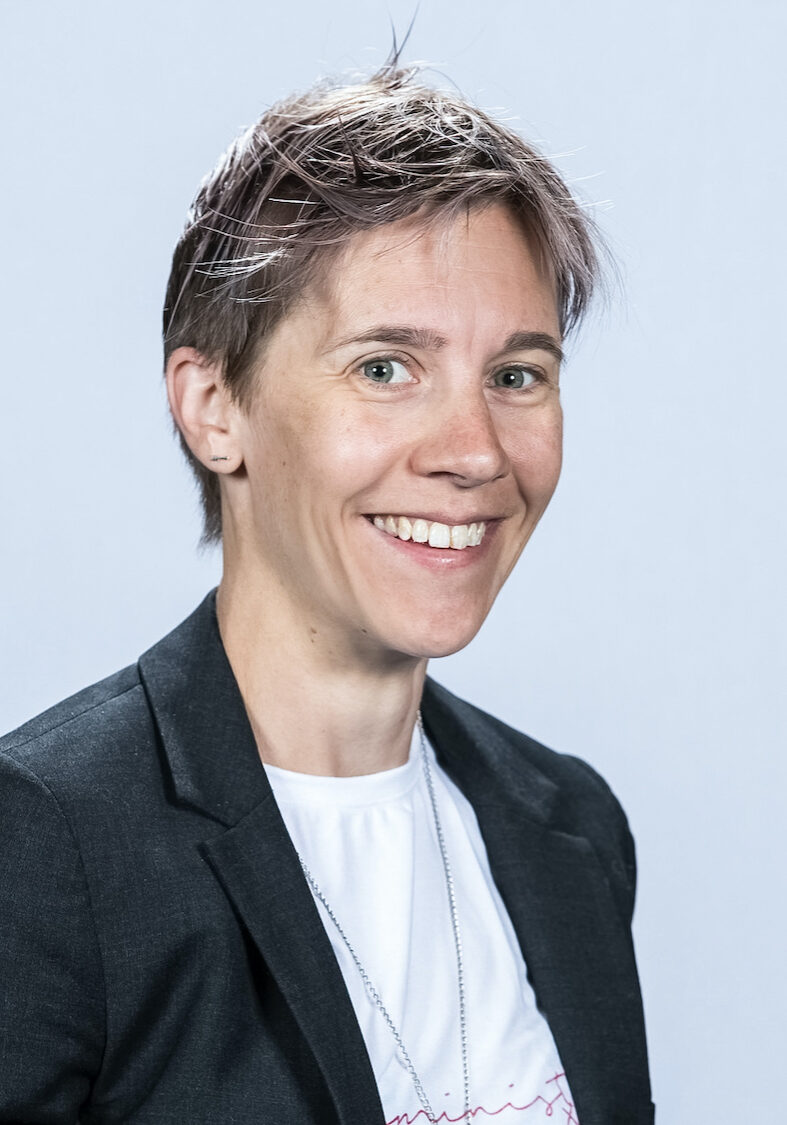
GREEN GLOBETROTTER
Wei Cheng Hooi (ChemE 2T0)
Hooi says that if she could describe her time at U of T Engineering in one word, it would be “priorities.” For Hooi, that meant focusing on sustainability research, and taking advantage of opportunities to go global.
Last summer she worked alongside graduate students at the University of Edinburgh as part of a summer exchange, supported by her department’s Dorothy Meldrum Szymaszek Student Exchange Award. She and her team investigated new candidates to replace the current three-way catalyst in catalytic converters for gasoline engines.
“I was involved in most parts of the project, from reviewing papers, to selecting potential candidates, to performance testing,” says Hooi. “I learned recently that these experiments are completed, and I’m now involved in writing the research paper.”
It was a busy summer for Hooi, who also travelled to Vienna, Austria to take part in a one-week artificial intelligence course run by the non-profit Board of European Students of Technology.
“It was an extremely precious experience to be able to attend a course with 40 students from all over Europe,” says Hooi. “I had the chance to learn about different cultures, explore a new city and make new friends from a lot of different countries. It was a totally unique experience, and one I might not have the opportunity experience again.”
During the school year, Hooi’s priority was to not only excel academically but to improve as a leader and communicator. She took part in student clubs such as U of T Toastmasters to practice public speaking and in leadership labs run by Troost ILead.
As a new alumna, Hooi plans to begin her experience in sustainability to the oil and gas industry in her home country of Malaysia.
“I would like to thank all my professors for the effort and time they put in to teach and guide us through our undergraduate studies. A special thanks to Professor Graeme Norval for all the mind-provoking questions and thoughts, they inspired me a lot. Last but not least, thank you Class of 2T0 (+PEY)! You have been a really supportive community and I learnt a lot from all of you."
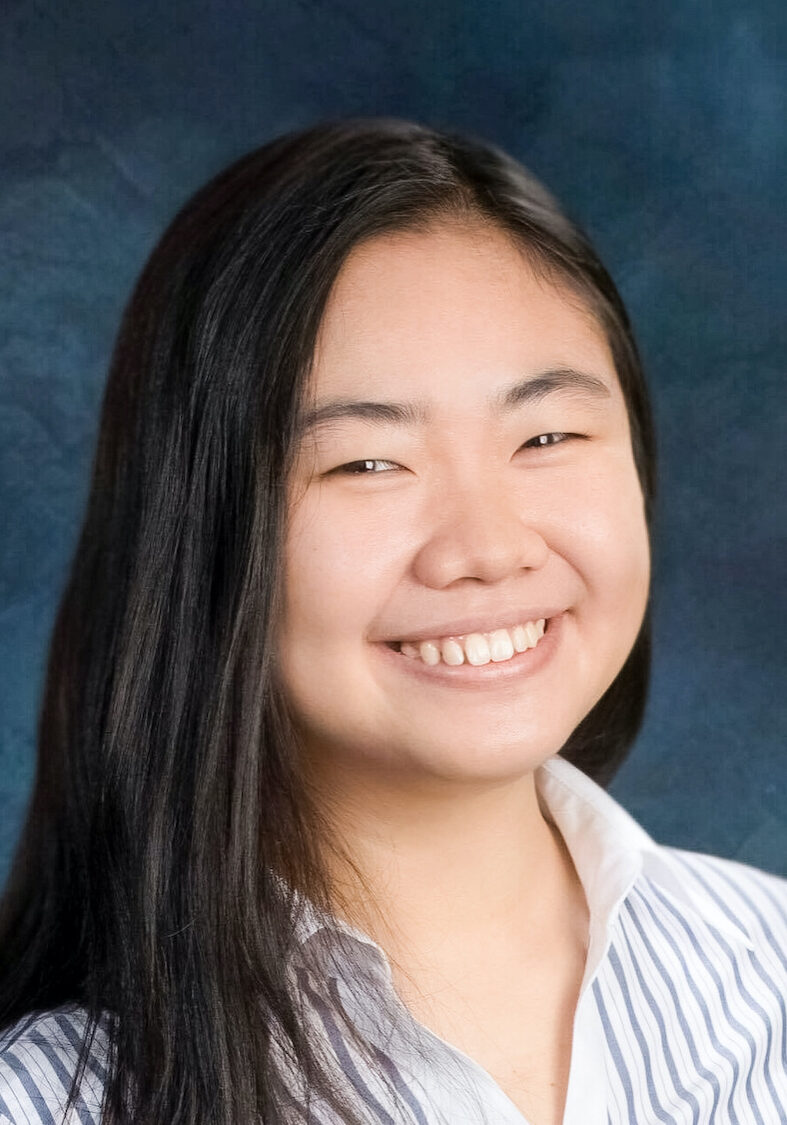
GLOBAL ENGINEERING AMBASSADOR
Shekhar Kumar (IndE 2T0)
“Being a part of Skule has taught me the importance of taking an active role in the communities that I belong to,” says Kumar. Over the years, those communities have included everyone from student entrepreneurs to the citizens of rural Maharashtra, India’s second-most populous state.
In his third year, Kumar spent a semester abroad at the Indian Institute of Technology Bombay. As part of the Centre for Technology Alternatives for Rural Areas (CTARA), he helped organize a field exercise for exchange students to learn about "Pani Panchayat," a voluntary activity led by farmers to collectively manage the collection and distribution of groundwater.
"From this study, I realized the necessity of selfless cooperation when facing a scarcity of resources," he says.
Kumar was deeply involved in the Creative Destruction Lab and the Entrepreneurship Hatchery, two startup accelerators at U of T. As a Hatchery Ambassador, he catalyzed relationships between venture capital firms and student startups, including Knowtworthy, which placed second at Hatchery Demo Day. He also led efforts to attract funding for the Cansbridge Fellowship, which will support student internship experiences in Asia.
After graduation, Kumar will relocate to New York City to take up a position as an analyst at McKinsey & Company.
“I am a staunch proponent of inclusive technology, and will be spending this fall travelling to the Dominican Republic and Peru, to learn from entrepreneurs working on bringing the benefits of accessible financial services to emerging markets,” says Kumar.
Asked to sum up his U of T Engineering experience in one word, Kumar chooses the Sanskrit expression anitya, which roughly translates to “impermanence.”
“From the changes I’ve personally undergone, to the physical changes visible on our campus, my time at U of T has been anything but static,” he says.
“I would like to thank Professor Birsen Donmez for being an inspiring mentor with an extraordinary ability to help students realize their academic potential and Jen Fabro for her unwavering and compassionate support in my first year."
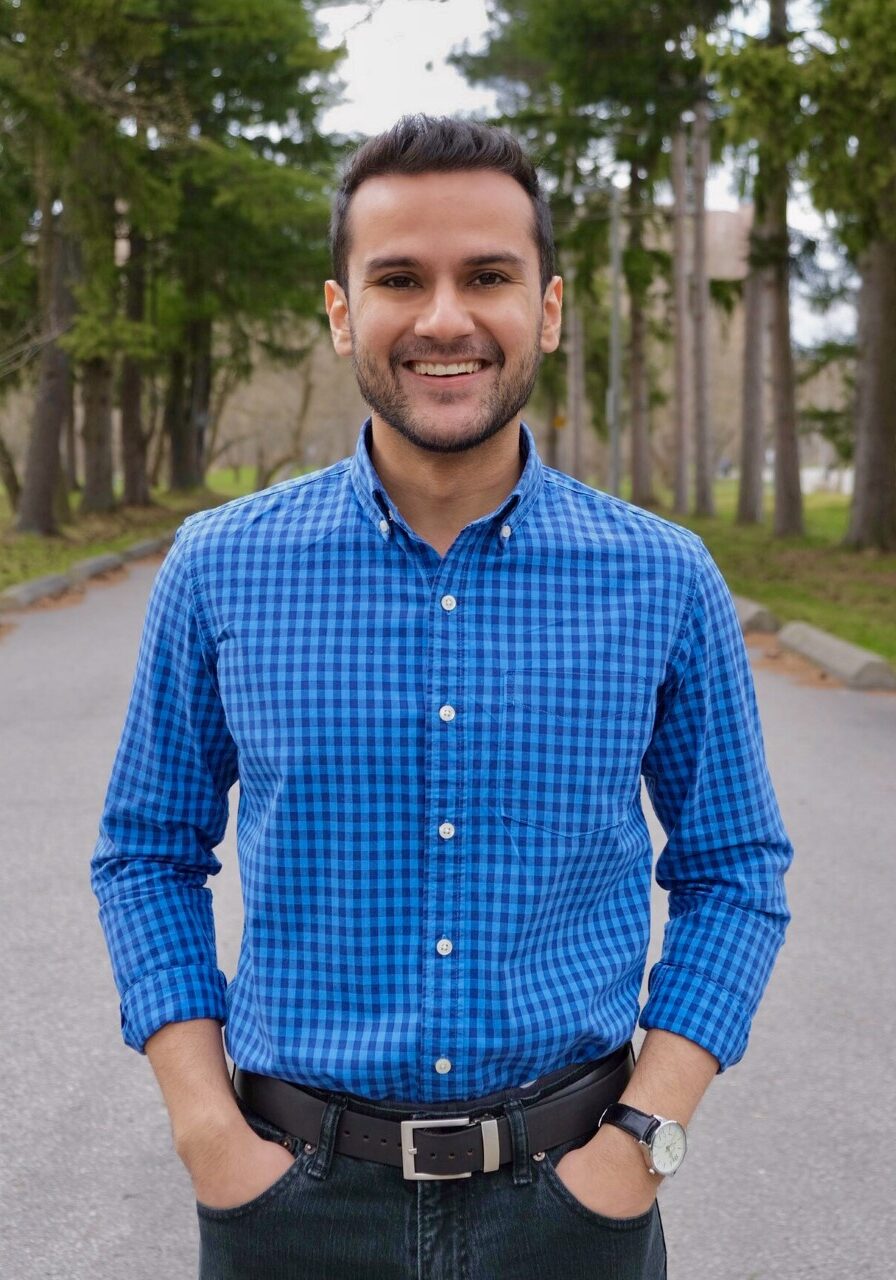
oled PROFESSIONAL
Hao-Ting (Howard) Kung (MSE MASc 2T0)
After working as a consultant in the oil and gas industry, Kung wanted to broaden his horizons by learning more about nanotechnology and electronic materials. He describes his experience at U of T Engineering as “eye-opening.”
“I had the opportunity to learn about the cutting-edge research conducted by various groups,” he says. “I was truly amazed by researchers’ ability and foresight to develop innovative solutions for today and tomorrow’s challenges.”
Kung’s thesis project focused on oxide materials that are found in various types of electronic devices, including everything from high-resolution display screens to new forms of solar cells. These materials are both complex and tuneable — by changing their electronic and chemical structures, they can be optimized for different applications. These materials help create new high-performance devices.
By the time he graduated, Kung was the lead author or co-author on five scientific publications, with two more under review. His next move will be to OTI Lumionics, a company founded on U of T Engineering research. As a process engineer, he will develop advanced materials for organic light-emitting diode (OLED) displays.
Kung says the biggest lessons he learned had to do with trusting his own problem-solving ability.
“Conducting research is like solving a puzzle,” he says. “It is crucial not to panic when facing unknowns. By staying calm and searching for answers to questions, challenges can eventually be overcome.”
"I would like to thank my supervisor, Professor Zheng-Hong Lu, who provided me with guidance and the opportunity to be exposed to various research areas outside of my thesis topic. I would also like to extend my appreciation to my groupmates, Peicheng Li and Antoine Dumont, for all their support."
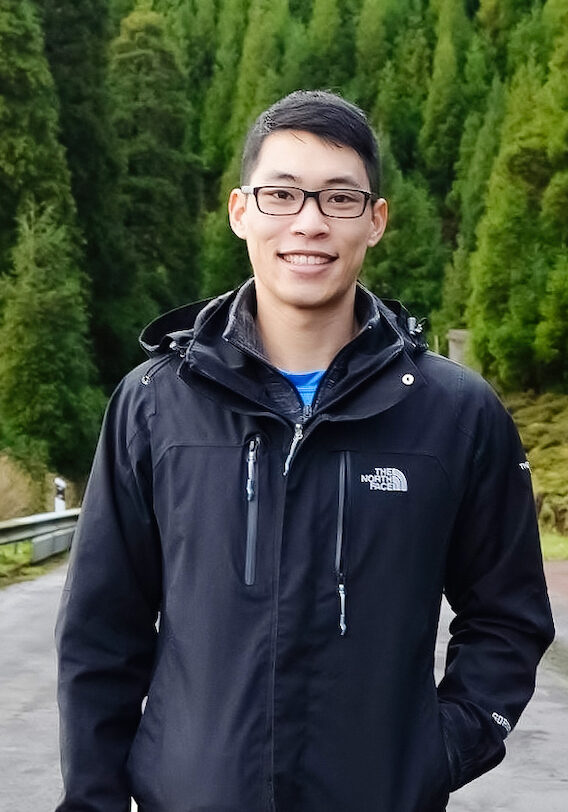
ADVANCED NETWORK BUILDER
Manush Nandan Mohankumar (ECE MEng 2T0)
Mohankumar came to U of T to learn from Professor Alberto Leon-Garcia and Dr. Ali Tizghadam, both experts in network softwarization. This approach updates closed and fixed proprietary telecommunications hardware, such as switches and routers, with a software-based approach in order to make networks more centralized, programmable and efficient.
In the second year of his MEng program, Mohankumar worked on a technique known as “network slicing” that combines new 5G technology with existing infrastructure, resulting in better mobile data networks.
In addition to upgrading his technical skills, Mohankumar was active in many student clubs, including Troost ILead, the Indian Graduate Students Association, and the Electrical and Computer Engineering Graduate Students' Society.
“Through these student club positions I have acquired good leadership traits, which will be useful throughout my career,” he says. “My experience has changed the way I think and make decisions. There are so many positives I will take from my time at U of T Engineering.”
Mohankumar secured an internship with Telus during the second year of his MEng program, working as a network software developer. He will be continuing full-time with the company following his graduation.
“I would like to thank my supervisors Professor Alberto Leon-Garcia and Dr. Ali Tizghadam for providing constant support and guidance. A huge shout-out to the faculty, staff and fellow students of ECE who have been part of this amazing journey. Finally, I would like to thank my family for the constant moral support."
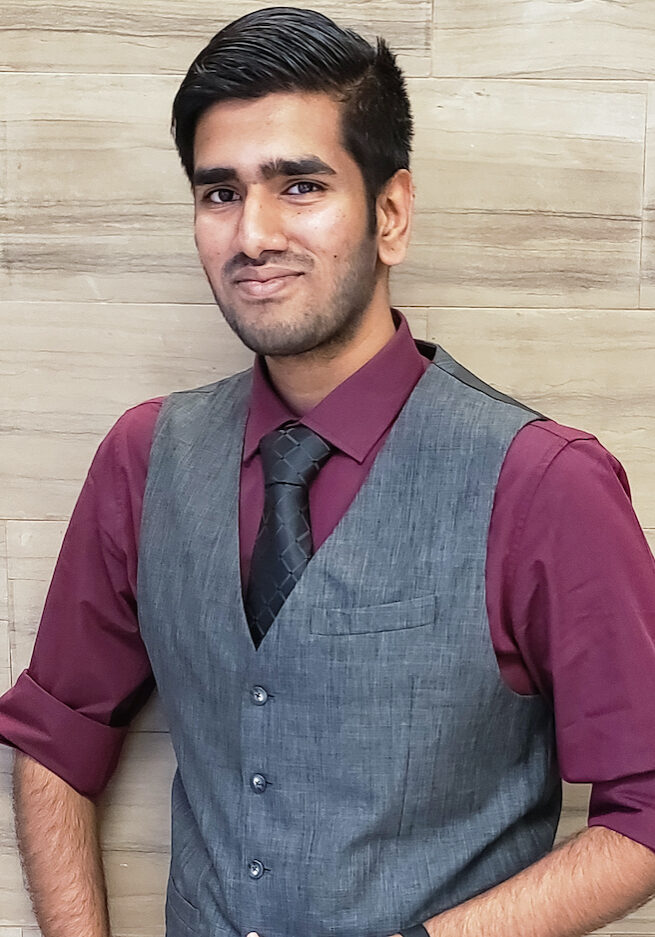
COMMUNITY CULTIVATOR
Ben Mucsi (EngSci 1T9 + PEY)
Since Mucsi’s first year at U of T Engineering, he has made it his mission to fully immerse himself in the student community by joining a wide variety of student clubs and teams.
“The communities that exist in university are truly special, as we are all going through some similar challenges and going through them together,” says Mucsi, who recently received a U of T Student Leadership Award for his contributions to the university student experience. “Between sports, clubs and design teams, there is something for everyone, and that comfort is something that I am sure to miss after graduation.”
Mucsi’s endeavors have taken him in front of crowds of first-year engineering students as the Engineering Orientation Chair, across Canada as the Varsity Fencing Team’s captain, and to Adelaide, Australia, as part of the Blue Sky Solar Racing Team.
“I feel the most significant thing that I've learned is that confidence is incredibly valuable to achieving whatever goals you set for yourself. Through my time at school, with all the academic and extracurricular teams I've worked on, I have truly learned the value of pulling people in so that they feel empowered to contribute their ideas.”
Upon graduating, he will be entering the field of management consulting with the Boston Consulting Group in Budapest, Hungary. In the long term, he hopes to work in the energy sector, helping to contribute in the fight against the climate change crisis.
“I would give a shout-out to all my orientation team members, leedurs [sic], and volunteers who delivered an awesome orientation experience to the incoming class! We all worked extremely hard for several months leading up to F!rosh Week, and despite all the hurdles, everyone came together to focus on what was most important. I really can't imagine how I would have made it through without all the support from the community!"
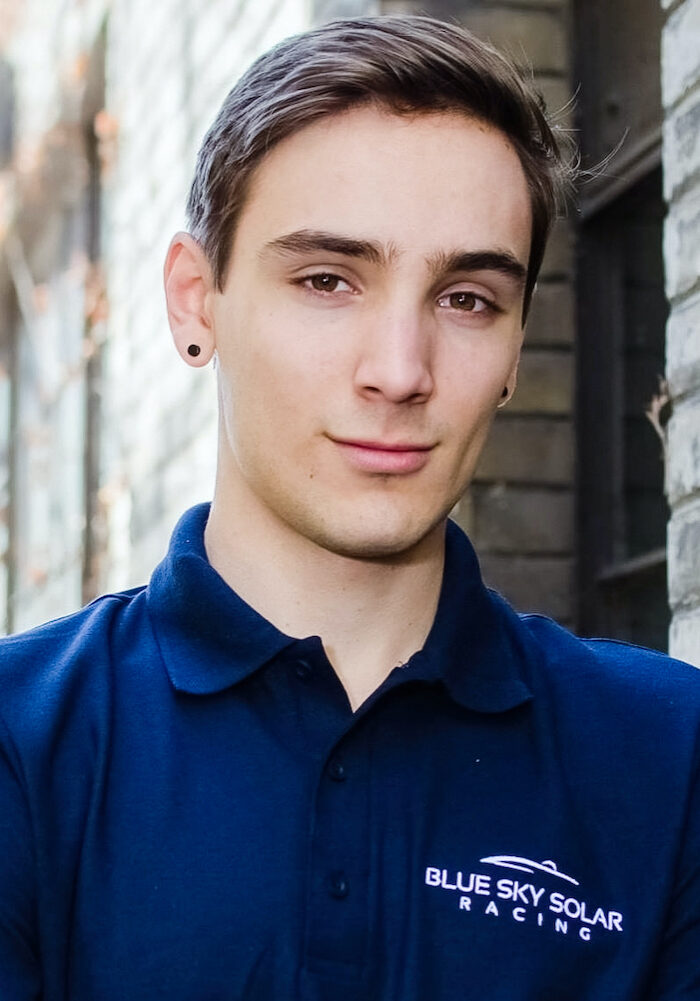
Microroboticist
Onaizah Onaizah (MIE PhD 2T0)
For her PhD thesis, Onaizah designed a tiny pair of robotic scissors that can be controlled by external magnetic fields using a joystick — no cables, wires or other attachments.
See a video of the robotic scissors in action
“This project was done in collaboration with neurosurgeons from SickKids,” says Onaizah, who was supervised by professor Eric Diller. “This is a promising start for developing completely untethered tools for remote surgical applications in the brain.”
The prototype device is only about one centimetre long, but Onaizah says that the eventual goal is to reduce it to only half this length. It could be used to make minimally invasive surgery, also known as ‘keyhole surgery’, even less invasive.
Onaizah’s research was supported by several prestigious awards, including the Queen Elizabeth II Scholarship and the Barbara and Frank Milligan Fellowship. She was strongly involved in student government, serving on the Graduate Student Council and the Association of Mechanical and Industrial Engineering Graduate Students (AMIGAS), where she cofounded a student seminar series and organized a research symposium.
“I think it’s really important to give students a chance to hone their presentation skills and develop connections, both within and beyond our department,” she says. “Getting involved introduced me to ideas and people that I would otherwise never have come across.”
Following her thesis defense, Onaizah took up a postdoctoral fellowship in surgical robotics at the University of Leeds. She is working with Professor Pietro Valdastri, a leading researcher in the field of medical robotics.
“Having spent nearly a decade at U of T, it was hard to imagine leaving,” she says. “It was not always easy as a woman in STEM, which can be isolating, but I had plenty of role models guiding my way and paving a path for me.”
"My supervisor, Professor Eric Diller, was always around to offer support, have meetings and listen to all my experimental struggles. I couldn’t have done it without him. I would also like to thank AMIGAS for all the excellent work it does for the students in our community, and my lab members for creating such a fun and inviting space, and for becoming some of my closest friends."

AUTONOMOUS ROBOT DOCTOR
Valentin Peretroukhin (EngSci Aero 1T2 + PEY, UTIAS PhD 2T0)
Peretroukhin’s thesis focused on new algorithms to help self-driving vehicles and robots “see” using cameras similar to those found in smartphones.
“These cameras are compact, relatively inexpensive, and consume low amounts of power, making them useful sensors for self-driving cars and flying drones,” says Peretroukhin. “The challenge is computing camera motion from a sequence of still images. My thesis presented new ways to do this by combining machine learning with classical techniques developed over the last four decades of robotics research.”
Outside of his thesis, Peretroukhin helped his supervisor, Jonathan Kelly, develop an online course on programming self-driving vehicles, now available worldwide through Coursera. He also found time to co-found Pillsy, a startup company that helps people remember to take their medication through the use of a sensor-enabled pill container. Pillsy received support from both the Entrepreneurship Hatchery and Start@UTIAS accelerator programs.
Peretroukhin received an NSERC Canada Graduate Scholarship and served as president of the Aerospace Students’ Association in 2016–2017. After graduation, he will take up a position as a postdoctoral fellow at the Massachussets Institute of Technology, joining the Robust Robotics Group of Professor Nicholas Roy, part of the Computer Science and Artificial Intelligence Laboratory.
“A Ph.D. can be just as much about breadth as it is about depth,” says Peretroukhin. “I loved and cherished the opportunity to broaden my perspective — to get involved with school politics, to travel the world and meet researchers with diverse backgrounds.”
“I’d like to thank my supervisor, Jonathan Kelly, for his support, magnanimity, and warmth."
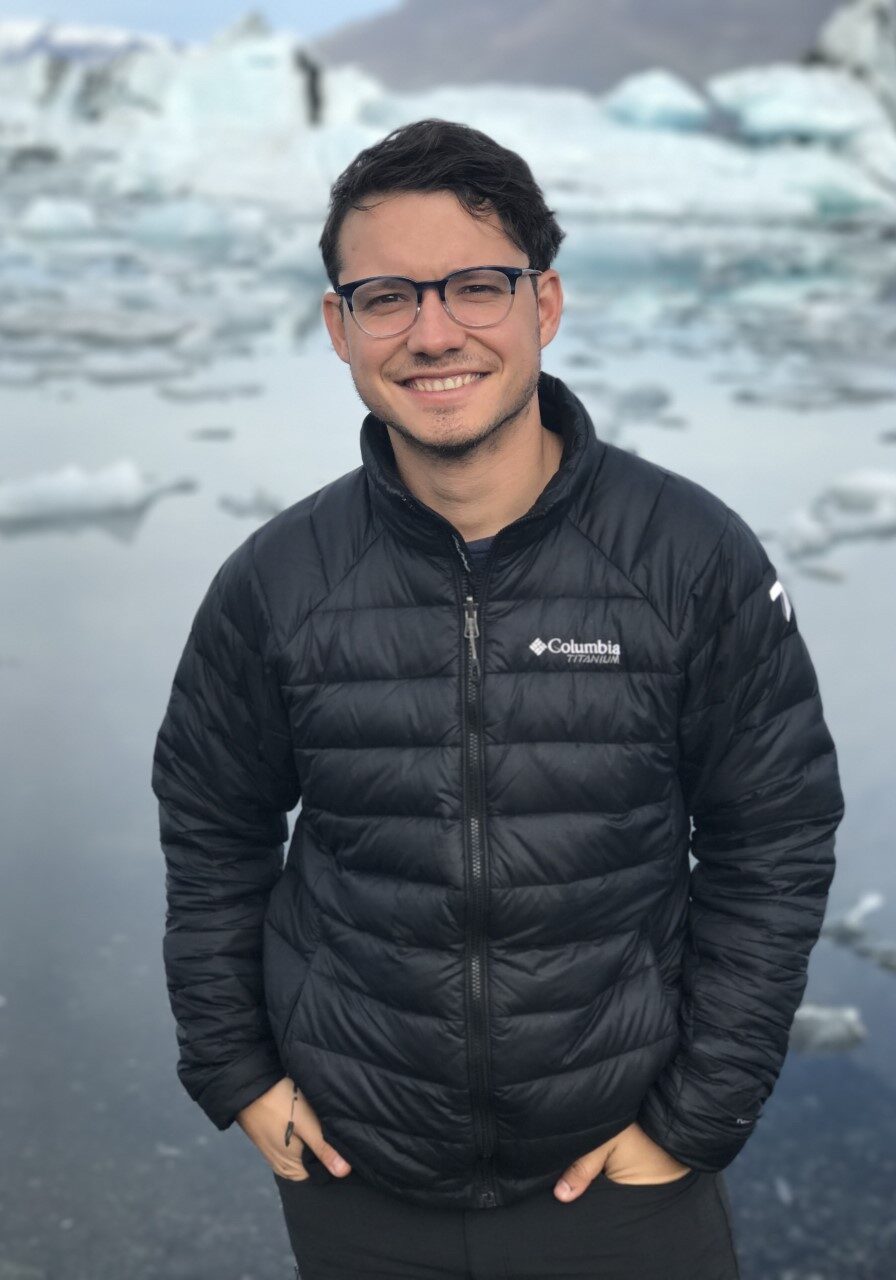
STANFORD-BOUND SUPERSTAR
Netra Unni Rajesh (EngSci 1T9 + PEY)
Netra Unni Rajesh’s post-U of T Engineering career is already off to a spectacular start. In May, she was recognized with a 3M National Student Fellowship Award, and was selected as a Stanford Knight-Hennessy Scholar, receiving funding to pursue her PhD at Stanford University and participate in its experiential leadership program.
“It still feels very surreal to be selected as a scholar from over 6,000 international applicants,” says Rajesh. “I am fortunate, honoured and extremely grateful to have received this scholarship.”
The scholarship adds to a long list of achievements for Rajesh. Just a month prior she was recognized with a U of T Student Leadership Award. In 2019, she was a speaker at TEDx Mississauga — her topic was the importance of inspiring children to pursue science, technology, arts, engineering and math (STEAM) fields.
During her summers as an undergraduate, she participated in research exchange opportunities abroad, including at the National University of Singapore and at the California Institute of Technology.
“Both international experiences made me realize that I was keen to pursue engineering on a global scale. These opportunities inspired me to pursue my PEY Co-op abroad as well,” says Rajesh, who completed her placement at the Massachusetts Institute of Technology where she worked in the lab of Robert S. Langer, a world-renowned researcher in biomedical engineering.
Rajesh says her U of T Engineering journey has taught her how to ask the right questions. “In scientific research, a key skill is learning how to ask questions that can propel your work in an impactful direction,” she says. “I’ve developed foundational knowledge in the maths and natural sciences, equipping me to ask important research questions. I am certain this skill will guide me in my pursuit of a PhD and in my strides towards a career in biomedical engineering.”
“I would like to extend my sincerest gratitude to the entire EngSci community – from my fellow classmates, to the professors and especially the administrative staff! I don’t think any of the opportunities I had pursued would have been possible without their guidance and support.
I am also very grateful for the amazing mentors I have had thus far in my academic career – they taught me how one can use their own resources to help others move forward.
Finally, I am eternally grateful to my family for believing in me and wholeheartedly supporting any endeavour I undertake, no matter how challenging! "
CYBERSECURITY GURU
Anna Shi (ElecE 2T0)
Shi’s passion for cybersecurity crystallized during the summer she spent in the lab of Professor Deepa Kundur. There she studied the literature on adversarial machine learning, which amounts to trying to trick artificial intelligence algorithms by violating the statistical assumptions they are based on.
“I went in expecting to just get my toes wet, but I came out with much more,” says Shi. “Professor Kundur pushed me in various directions to broaden my field of knowledge, and she showed genuine interest in me and my future career path.”
After her third year, Shi spent the summer semester working at Canadian Nuclear Laboratories (CNL) in Fredericton, N.B. where she focused on cybersecurity as it relates to nuclear facilities.
“The cybersecurity division at CNL is new and because of that, I was able to take on more responsibility than is usually given to a summer intern,” she says. “I worked on securing nuclear power plants from cyber threats, taking the theoretical knowledge I'd gained from Professor Kundur and applying it to some real systems.”
The internship was so successful that Shi will return to CNL full-time after graduation. “My job will basically be to prevent bad actors from stealing Canada’s radioactive material and making weapons with it,” she says.
Outside of class, Shi spent a lot of time at the U of T Judo Club, which helped her both physically and philosophically. “Learning judo is also a great metaphor for life. You try, fall, learn from your mistakes, then get back up and try again.”
Her advice to current students is to roll with the punches. “Confusion is the feeling of learning,” she says. “When you really don't understand something, there's something more basic that you're missing. Find that basic thing, learn it, then come back and try again.”
“My eternal gratitude to Professor Deepa Kundur for supporting me and believing in me all this time. I can honestly say that my life has changed for the better because I worked up the courage to email her."

ENGINEERING FOR SOCIAL GOOD
Tobi Sogbesan (MechE 1T9 + PEY)
Sogbesan says that his experience at U of T Engineering was not always easy, but that the challenges were connected with personal growth.
“I remember that in my first semester, I struggled to adapt,” he says. “But every year after that, I grew, not only academically but also in the way I think and approach problems in my everyday life.”
After his third year, Sogbesan spent 16 months working at the Molson Coors Brewing Company through the PEY Co-op Program, where he recommended process improvements that led to energy savings of around $100,000 annually. As part of his fourth-year capstone project, he took a trip to Corn Island, Nicaragua to help protect a local freshwater spring from saltwater incursions.
Sogbesan was active in the U of T Chapter of the National Society of Black Engineers throughout his undergraduate degree. Most recently, he served as the sponsorship lead for NSBEHacks, securing funding from partners such as Google, Shopify, IBM and Bloomberg.
After graduation, Sogbesan plans to continue working in the energy sector and dreams of one day starting his own company. He believes his education has been as much about ethics as it was about technical knowledge.
“One of the main things I’ve learned is that I have a responsibility to fulfill my duty to the best of my ability without jeopardizing my moral and ethical values,” he says.
"I want to use this opportunity to shout out the National Society for Black Engineers (NSBE) and my fellow colleagues for making my university experience better both academically and also socially."
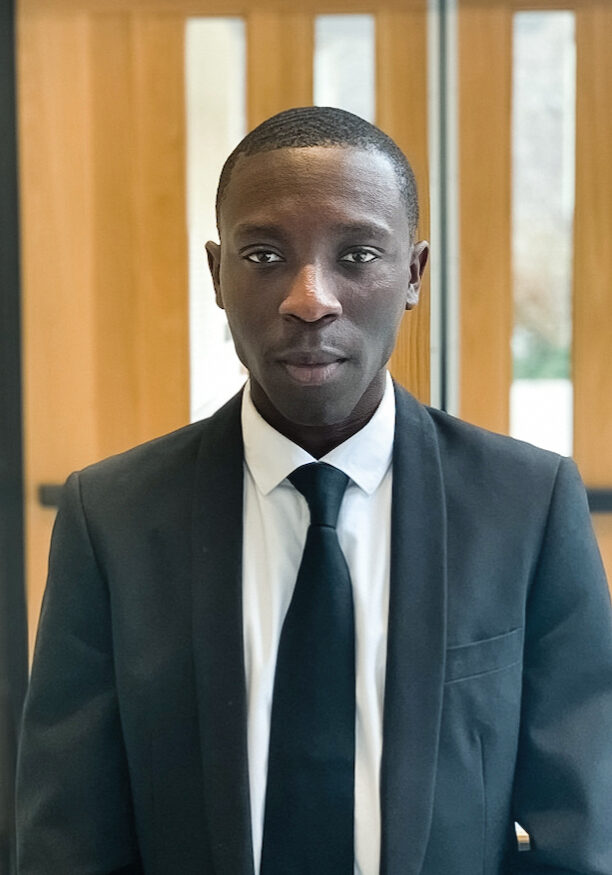
STEM innovator and role model
Daniel Szulc (BME PhD 2T0)
Working with Professor Hai-Ling Margaret Cheng, Szulc developed non-invasive ways to monitor the progress of emerging therapies, such as stem cell injection.
“The last thing a patient wants is to have invasive surgery months after injection just to check whether the cells are still there,” he says. “We are using non-invasive techniques, such as magnetic resonance imaging (MRI) to track the process of tissue regeneration deep inside the human body.”
Szulc served as co-chair of Science Rendezvous, Canada’s largest free science street festival, which helped to spark interest in STEM disciplines and improve scientific literacy among its more than 25,000 attendees. He also worked with school board administrators, teachers, and aboriginal elders to implement STEM workshops and educational programs in multiple remote communities across northern Ontario and the Northwest Territories.
Together with other medical and engineering students, Szulc created UnityOR, a digital assistant for the operating room that enables surgical teams to automate key aspects of record-keeping and increase their focus on patients. Following graduation, he plans to continue growing this start-up while also pursuing a post-doctoral fellowship in tissue engineering at the Ted Rogers Centre for Heart Research in Toronto.
Szulc is also a competitive dragon boat racer. As a member of the New Dragons, he has won multiple national and international competitions, including the gold medal at the Pan-American Dragon Boat Championships.
Whether in academics, outreach, sport or business, he says that every opportunity enabled him to come closer to his goals.
“One of the most important things I learned is the importance of interdisciplinary collaboration and the power of a collective effort,” says Szulc. “The opportunity to engage with inspiring academic, industrial and clinical colleagues taught me how to understand others' perspectives before rationalizing my own. It was an incredible journey.”
"I would first and foremost like to thank my supervisor, Professor Hai-Ling Margaret Cheng for her dedicated mentorship and inspiration. I would also like to thank the Institute of Biomedical Engineering, a truly unique department that fosters and promotes innovative and multi-disciplinary collaboration across academia and industry. The work I accomplished would not have been possible without this aid and support."
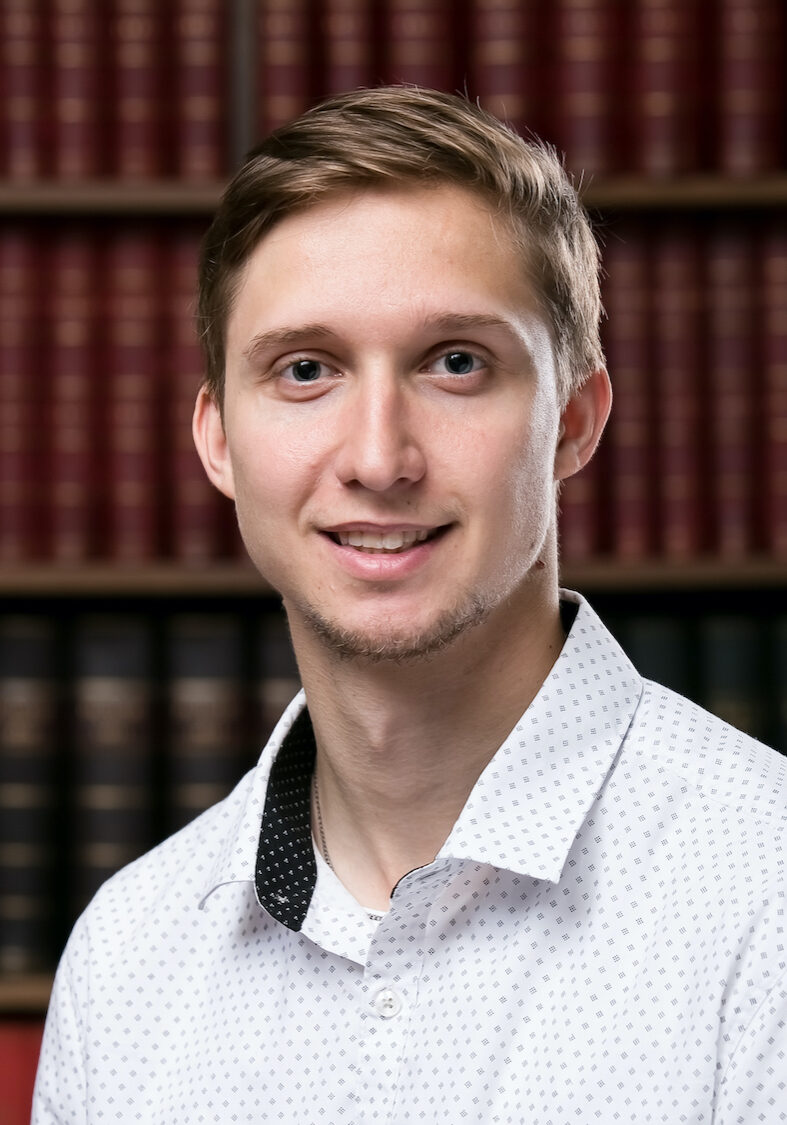
Building community
Simonne Varela (CivE 1T9 + PEY)
Varela's passion for leadership began to shine through in her second year, when she organized a dinner dance for 300 students through her role in the Civil Engineering Club. She would eventually rise to become the club’s chair, where she focused on events and workshops related to the health and wellness of her fellow students.
Her duties included acting as a liaison between the department and students, as well as mentorship, a role she further expanded on as part of the committee that organized Orientation Week.
“Through my leadership activities, I was able to gain valuable interpersonal and organizational skills,” she says. “I learned the importance of working in teams and asking for help when needed. The work we conduct in engineering is not easy to take on by yourself.”
After her third year, Varela spent 16 months working for the structural engineering firm IBI Group through the PEY Co-op Program.
“I worked on a large variety of municipal projects and gained a lot of design experience,” she says. “I think the biggest lesson I learned was about communication and making sure you were as clear as possible with any of the work you conducted. These skills are equally useful when working in teams on group projects or extracurriculars.”
Following graduation, Varela plans to continue working in building science.
“This field allows me to work in an industry structured around sustainability and community development,” she says. “As an engineer, that’s what I am most interested in contributing my work towards.”
“I’ve had an amazing support system throughout my years at U of T. Professors such as Brenda McCabe acted as role models, offering me valuable advice on streamlining my interests. Faculty admin provided me with many opportunities to develop my skills, and I’ve had wonderful friends and classmates. Without their support, this would have been a hard path to travel down, and I'm glad to have made so many long-lasting friendships."
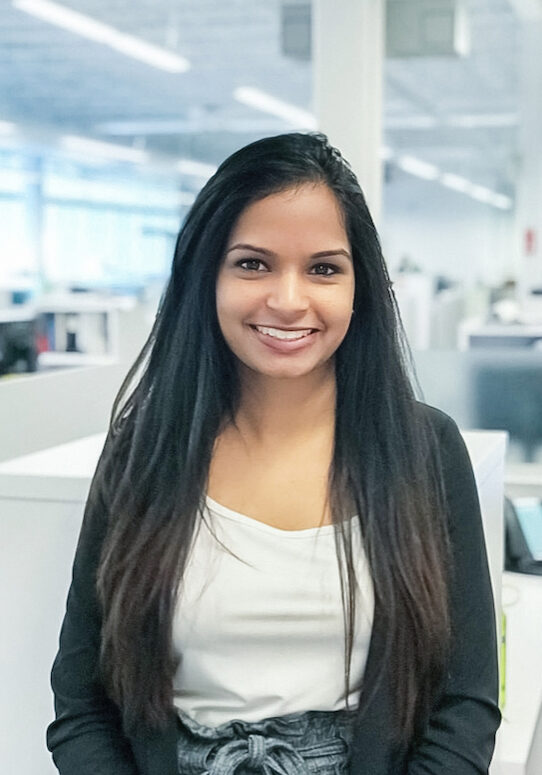
robots for the people
Janice Zhou (MechE 1T9 + PEY)
Throughout her time at U of T Engineering, Janice Zhou never forgot how to play.
As co-president of the Spark Design Club, she leveraged the design and fabrication skills of her interdisciplinary team to create fun, interactive displays all over campus. She also worked in product development engineering at the toy company Spin Master as part of the Professional Experience Year Co-op Program.
Zhou completed two research terms. With Professor Alison Olechowski (MIE), she analyzed the emotional experience of designers during CAD activities using AI-informed tools. With Professor Fae Azhari (CivMin), she worked on preventing bridge scour, a phenomenon by which fast-flowing water damages bridge foundations by removing sediments. She helped develop innovative sensing and monitoring systems to catch and correct bridge scour before it’s too late.
“The connections I made through all these experiences helped me grow and develop, both personally and professionally,” she says. “I learned that engineering is not just about math and physics, but also problem solving and working with others, and that I can combine my interests and find my own unique way to contribute.”
Following graduation, Zhou is headed to the Massachusetts Institute of Technology, where she will complete a Master’s program in robotics, focusing on robot control and learning. Through her studies and research, she hopes to contribute to the development of autonomous vehicles and assistive robots.
“I am fascinated by the endless possibilities robots provide for improving the quality of people's lives,” she says.
“I want to thank many of my professors at U of T for their amazing guidance and support, especially Professor Alison Olechowski. Thank you for believing in me, patiently guiding me through many important milestones in my undergrad journey, and always challenging us intellectually while helping us generously."
